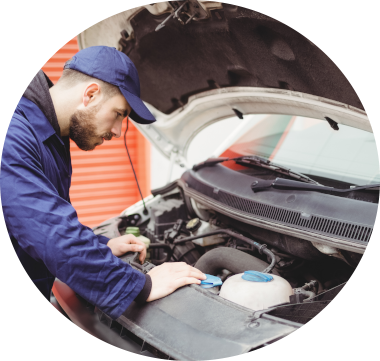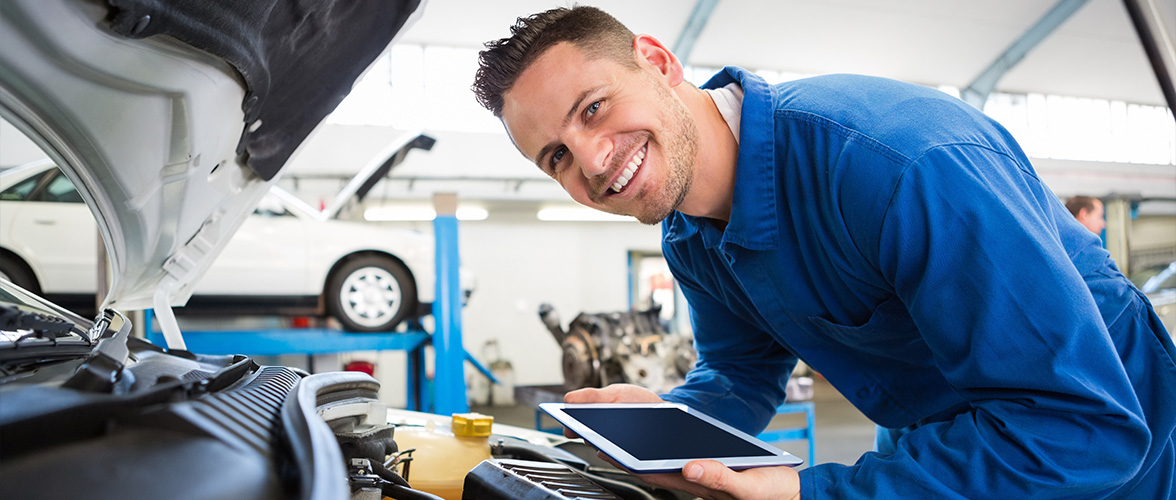All Categories
Featured

When it concerns car upkeep, the brakes are perhaps one of the most essential system for guaranteeing your safety. Your brakes have to operate ideally to stay clear of crashes and respond quickly in emergencies. Regular brake examinations are important to keeping your stopping system in top condition. Comprehending when and just how to inspect your brakes can save you from unsafe scenarios and pricey fixings in the future. Below's an overview to assist you stay on top of brake assessments.
- Why Brake Examinations Are Crucial. Brakes are created to wear down gradually, yet without regular inspections, you might not observe when they become much less effective. A malfunctioning brake system can cause significant mishaps, raised repair service prices, and even the requirement to change various other lorry components.
Brake assessments not just assist you catch possible concerns before they intensify, yet they likewise permit much better braking efficiency, increased automobile lifespan, and enhanced security.
- Acknowledging Warning Indicators for Brake Problems. While routine examinations are very important, you don't need to wait until your car's following check out to the mechanic. Look for these indication that may suggest it's time for an assessment:
Unusual Sounds: A high-pitched squeal or grinding noise when applying the brakes commonly indicates that the brake pads are put on down or harmed. Soft or Spongy Brake Pedal: If the brake pedal feels soft or mushy when pressed, there might be air or moisture in the brake lines, or the brake liquid might be reduced. Pulling to One Side: If the car draws to one side while stopping, it could indicate unequal brake pad wear or a hydraulic problem in the brake system. Resonance in the Steering Wheel or Pedal: If you experience resonance or pulsation when stopping, it might suggest distorted rotors or unequal brake pad wear. Increased Quiting Range: If it takes longer than normal to bring your car to a quit, it may be time to check the brake pads, liquid degrees, or blades. If you notice any one of these indications, it's best to have your brakes checked quickly by a professional.
- Trick Parts Checked During a Brake Evaluation. Throughout a brake evaluation, a qualified technician will certainly check out several vital components of the brake system to ensure they're operating effectively. Some of one of the most fundamental parts to examine include:
Brake Pads: These are the friction material that presses against the brake rotor to slow down the lorry. In time, the brake pads put on down and require changing. Brake Rotors: Blades are the steel discs that the brake pads secure down on. They should be smooth and without deep grooves or cracks. Brake Fluid: The brake liquid transfers the pressure from the pedal to the brakes. Reduced liquid levels or old, polluted fluid can result in bad stopping performance. Brake Lines: Brake lines bring fluid from the master cylinder to the brake parts. They ought to be looked for leaks, cracks, or damages. Brake Calipers: These secure the brake pads onto the rotors. They ought to be in excellent functioning order and devoid of leaks. On a regular basis inspecting these components guarantees your stopping system operates efficiently and helps you prevent dangerous driving scenarios.
- How Usually Should You Get Your Brakes Examined? The regularity of brake examinations depends on your driving practices and the kind of car you own. As a general guideline, it's advised to examine your brakes at the very least once a year or every 12,000 miles. If you drive in hefty website traffic, regularly lug hefty lots, or drive on hilly terrain, even more constant examinations may be necessary.
It's additionally a good concept to have your brakes checked if you see any one of the warning signs discussed previously, as this can stop a lot more significant concerns.
- The Expense of Ignoring Brake Inspections. Overlooking routine brake examinations can cause significant repercussions. Worn brake pads, harmed blades, or reduced brake liquid can trigger your braking system to stop working when you require it most. Along with the safety threats, disregarding brake upkeep can lead to costly repair services later on.
As an example, if the brake pads are not changed in time, the damages can reach the rotors, bring about the requirement for rotor replacement-- a pricey repair. By scheduling normal brake examinations, you can avoid these expensive fixings and maintain your stopping system in great problem for longer.

- What Takes place During a Brake Assessment? A professional auto mechanic will certainly perform a detailed assessment of your lorry's braking system, including inspecting for the complying with:
Brake Pad Density: Brake pads require to be replaced when they have actually used down to a particular thickness. Rotor Problem: The mechanic will certainly examine the blades for indicators of wear, bending, or scoring. Brake Liquid Degree: Low brake liquid can affect braking efficiency. The technician will inspect the liquid level and restore it if needed. Brake Line Stability: The brake lines will certainly be checked for any kind of leaks or cracks that can compromise the brake system. As soon as the examination is full, the technician will certainly educate you of any type of essential fixings or replacements.
Conclusion: Stay Safe with Normal Brake Inspections. Your brakes are vital to maintaining you and your guests secure when traveling, so routine brake examinations must never ever be ignored. By paying attention to caution indicators, scheduling periodic brake checks, and attending to issues without delay, you can make sure that your brakes are always in top form.
Don't wait up until your brakes fall short-- stay aggressive about brake upkeep. A tiny investment in brake evaluations today can conserve you from costly fixings and harmful scenarios in the future.
Latest Posts
Explore Trusted Auto Repair exclusively at Car-X – Quality Service Awaits
Uncomplicated Coin Conversion with Coinstar and WyHy Federal Lending Institution
Optimize Your Savings with Love My Credit Rating Union Rewards
More
Latest Posts
Explore Trusted Auto Repair exclusively at Car-X – Quality Service Awaits
Uncomplicated Coin Conversion with Coinstar and WyHy Federal Lending Institution
Optimize Your Savings with Love My Credit Rating Union Rewards
